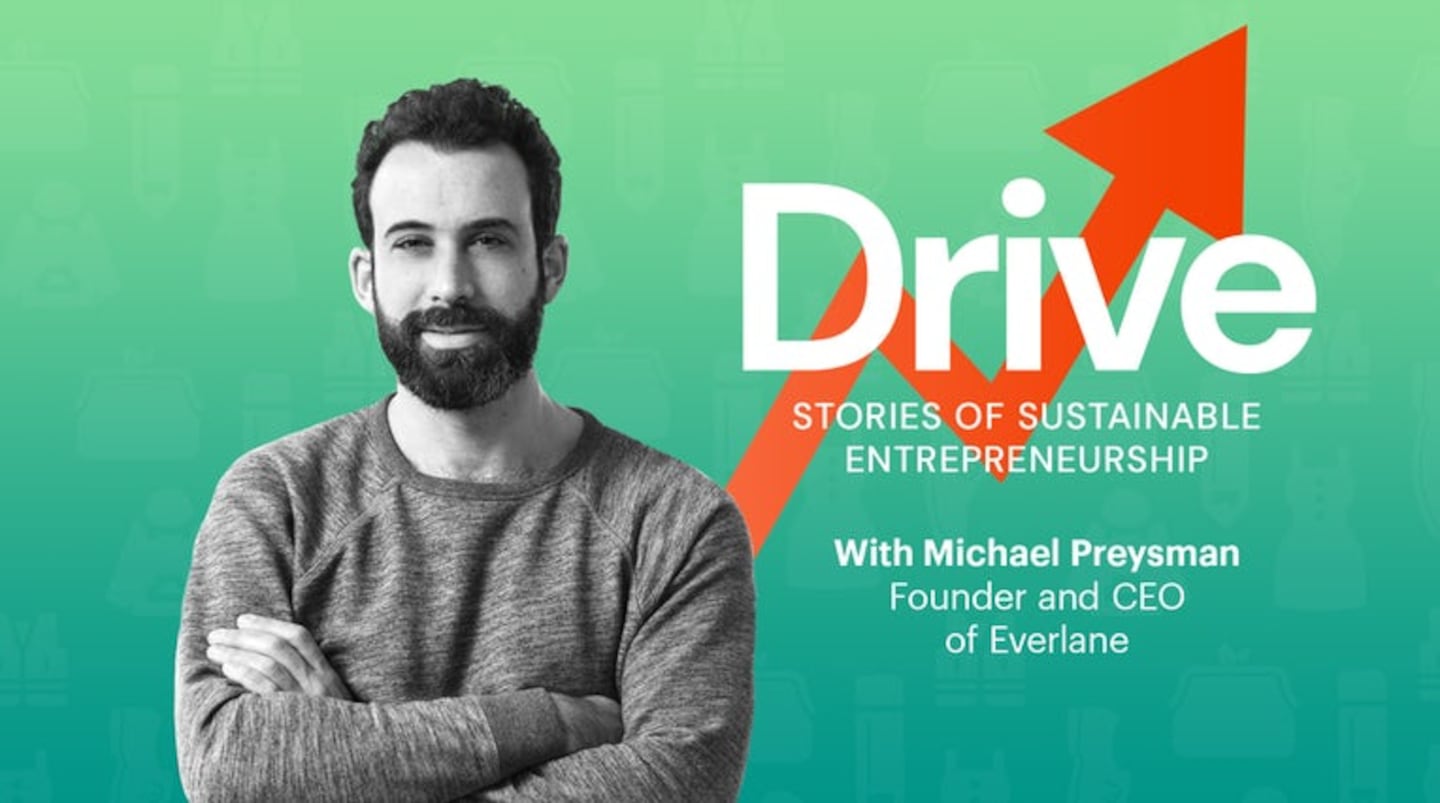
The Business of Fashion
Agenda-setting intelligence, analysis and advice for the global fashion community.

Agenda-setting intelligence, analysis and advice for the global fashion community.

Subscribe here to never miss an episode.
SAN FRANCISCO, United States — In the second season of Drive, BoF's entrepreneurship podcast series delivered by DHL, we have heard from some of fashion's most dynamic leaders on how they have chosen to adopt sustainable solutions to the businesses they founded. This week, in the last episode of the season, BoF's chief correspondent in New York Lauren Sherman sits down with Michael Preysman, founder of Everlane.
“We understand the cognitive dissonance of what we do. We sit there and say, 'Hey, let's make the world more sustainable,' but then we're selling product. What I believe is we have this strong north star that you can be both sustainable and live a successful and enjoyable life. Right now, the world believes those two have to be in competition with each other.”
At the age of 25, Preysman founded direct-to-consumer brand Everlane, leveraging social media and the internet to bypass middlemen, keeping prices low and margins high. Everlane’s commitment to “radical transparency” and focus on high-quality, honestly priced basics has resonated with consumers and the company is reportedly valued north of $250 million.
“You can't have your cake and eat it too. That's a really critical aspect of the way we do things. We're not applying words, we're starting at the bottom of the ground and saying, what do we believe in? We believe in the idea that climate change is real, and we need to make change. We build up from there. What does that mean for our product? What does that mean for our brand?”
“You're always balancing time, customer and product. You have to balance what you think is right for the planet and then what is right for the customer. Oftentimes, there are people who are too much on the planet-side and as a result, you're getting a very expensive product that is 100 percent sustainable but not affordable."
Later in the episode, we hear about the challenges of auditing factories in countries with low labour standards. The complex process of deciphering how to price products fairly and learning to focus on solving the most impactful environmental issues. “I would say there were two factories we chose in the early days that we felt like we had good relationships with but ultimately could not get their shit together — people were working overtime and they weren't actually paying them accordingly. We've left both those factories. Now, we're double auditing. We're being very strict around how we do it and much more specific about what we expect from factories,” says Preysman.
To subscribe and never miss episode of Drive, please follow this link.
Subscribe to BoF Professional for unlimited access to BoF articles, plus exclusive benefits for members. For a limited time, enjoy a 25 percent discount on the first year of an annual membership, exclusively for podcast listeners. Simply, click here, select the Annual Package and use code PODCAST2019 at the checkout.
As the German sportswear giant taps surging demand for its Samba and Gazelle sneakers, it’s also taking steps to spread its bets ahead of peak interest.
A profitable, multi-trillion dollar fashion industry populated with brands that generate minimal economic and environmental waste is within our reach, argues Lawrence Lenihan.
RFID technology has made self-checkout far more efficient than traditional scanning kiosks at retailers like Zara and Uniqlo, but the industry at large hesitates to fully embrace the innovation over concerns of theft and customer engagement.
The company has continued to struggle with growing “at scale” and issued a warning in February that revenue may not start increasing again until the fourth quarter.